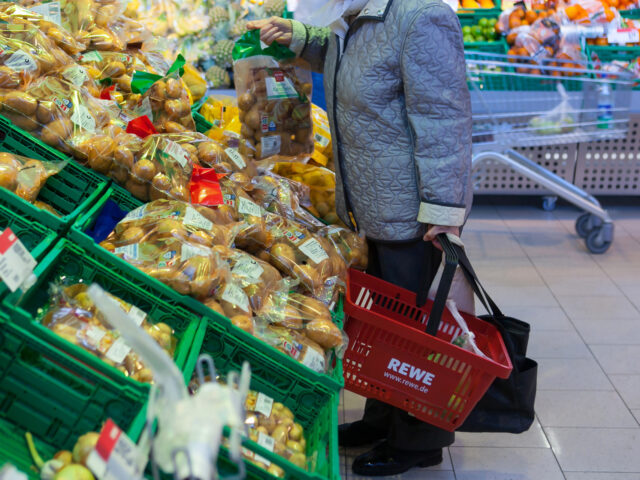Food prices in Germany have spiked by just under 40 per cent over last year, with items such as potatoes spiking by as much as 70 per cent in 12 months.
The German general public is facing a massive surge in the price of food — a considerable contributor to the ongoing cost of living crisis — with government statistics released on Monday indicating that the overall price of groceries in the country has risen by nearly 40 per cent within the last 12 months.
With many in the country already treading financial water as a result of an extreme surge in energy prices, the increased costs could not come at a worse time for citizens, with officials in the country worrying that riots and civil unrest remains possible should people be unable to properly heat their homes.
According to data published by federal statistics agency Destatis, the overall price of food rose by 39.4 in September, compared to the same month last year.
Some products however saw far greater price rises, with animal produce up just under 50 per cent, while the price of potatoes rose by a staggering 73 per cent within the same period.
Many supermarkets have meanwhile been left unable to stock certain products at all, with many stores across the country being left with empty shelves as inflation sparks a reduction in food supplies, as well as arguments between retailers and producers.
For many, the numbers are completely unsurprising, with around 3,000 people taking to the streets of Berlin on Saturday to protest food price hikes in the country.
Further protests are ongoing, with many locations in the country now seeing weekly demonstrations against the government on issues including the ongoing cost of living crisis, but also the ongoing COVID lockdown regulations.
Meanwhile, authorities in the country have repeatedly expressed fear that the ongoing complex of crises to do with energy shortages and inflation could result in open revolt in the forms of public unrest and rioting.
“…after the pandemic and the world events of the last few months, we are dealing with a highly emotional, aggressive, pessimistic mood among the population, whose trust in the state, its institutions and political actors is at least in some parts afflicted with massive doubts,” one state official tasked with protecting Germany’s democratic constitution remarked back in August.
“In this respect, we are likely to be confronted with mass protests and riots,” he continued, before saying that what the country had “experienced so far in the corona pandemic in the form of violent clashes on social networks, but also on the streets and squares, was probably more of a children’s birthday party” compared to what could be lying beyond the horizon.
Such fears appear to be shared by police forces in Berlin and beyond, which have been preparing to deal with the fallout of rolling blackouts should they occur over the winter months.

COMMENTS
Please let us know if you're having issues with commenting.